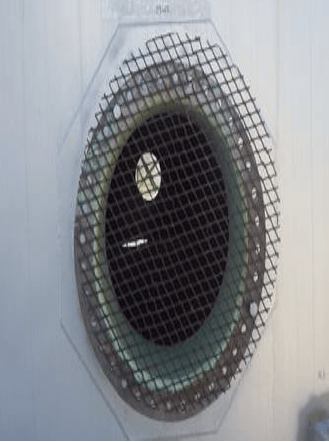There is a non-zero risk that is probably low but it is hard to quantify. If there is a change of service, tank lean, foundation settlement, external (pipe) loading, observation of corrosion or other change or detail that might affect the fitting then the risk goes up. You can try NDE, PMI and FEA to lower the risk but there may be a non-zero risk that such investigation and analysis may uncover additional deficiencies.
You have identified questionable details and will own any consequences attributable to your failure to mitigate them.
This is a risk / cost / consequence balance.
The replacement cost and cost of a failure can be quantified.
You can begin a program of replacing the fittings one tank at a time and show that you were making a good-faith effort to fix the issues while spreading the cost out over a reasonable timeframe.
You have a responsibility to the environment and the local community to operate safely and without incident, with your eyes wide open and your conscience clear.
If your neighbors were harmed by a failure how do you think they would fair in court when it is found that you inspected the tank, noticed something that is not in the recognized standard being used to inspect but you decided to not fix it just because it would cost money?
Sharp corner repads are not shown nor alluded to or hinted at in any portion of API 650 or 653. All acceptable repads shown or referenced have radii.
My basic advice is: "If you touch it you own it."
If you do anything including change of service, reducing weld spacing to the corner weld, pressure testing, etc that might affect the integrity of these fittings in even some small way, cut them out and replace them. If you determine that any of the material grades or thicknesses, weld hardness, reinforcing area, weld details etc do not meet current API standard, cut them out and replace them.
If you don't go anywhere near them, and all your NDE and PMI meet the current standard consider leaving them - if one fails you can claim not only did you not do anything to compromise the fitting you did additional investigation which revealed only the one detail that was not shown in the standard.

